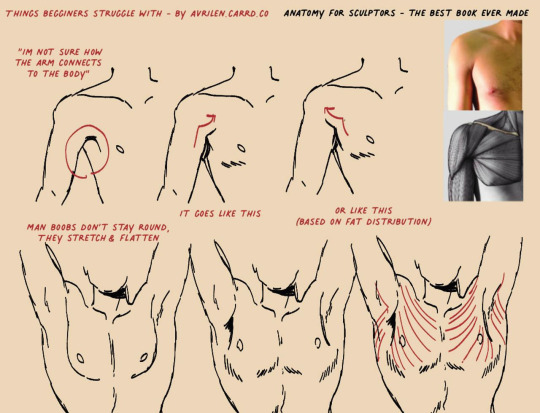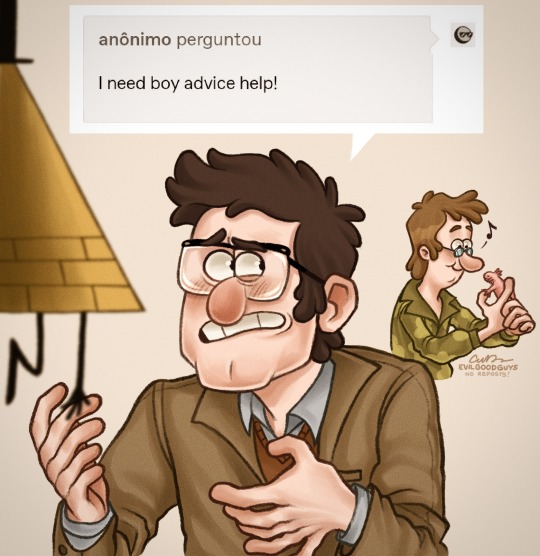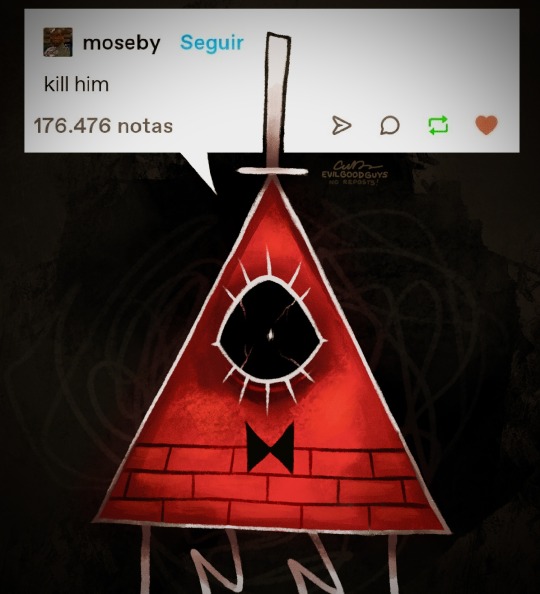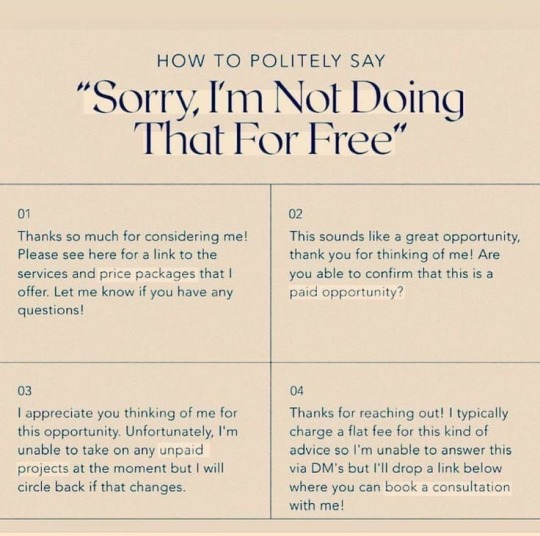#advicers
Explore tagged Tumblr posts
Text
Computer Science major here, it's not working because the computer doesn't respect you. download viruses on it to remind it who's boss.
follow for more tits
59K notes
·
View notes
Text
if you're trying to get into the head of your story's antagonist, try writing an "Am I the Asshole" reddit post from their perspective, explaining their problems and their plans for solving them. Let the voice and logic come through.
65K notes
·
View notes
Text
If you have achieved something, please remember to observe a mandatory period of basking in the warm glow of your achievement like a lizard on a stone, lest you teach your brain that effort is futile, actually, because it didn't get to enjoy its happy chemicals, so, naturally, nothing good ever comes of trying. (And no, avoiding punishment is not a reward!)
I recommend, like, 5% of basking time in relation to whatever time you invested into achieving the thing minimum. And if you can't make your own bask, friend-brought is fine (= tell your friends!).
#life advice#adulting#mental health#I know this comes harder for some people than for others but it's important to try
72K notes
·
View notes
Text
10 Non-Lethal Injuries to Add Pain to Your Writing
New Part: 10 Lethal Injury Ideas
If you need a simple way to make your characters feel pain, here are some ideas:
1. Sprained Ankle
A common injury that can severely limit mobility. This is useful because your characters will have to experience a mild struggle and adapt their plans to their new lack of mobiliy. Perfect to add tension to a chase scene.
2. Rib Contusion
A painful bruise on the ribs can make breathing difficult, helping you sneak in those ragged wheezes during a fight scene. Could also be used for something sport-related! It's impactful enough to leave a lingering pain but not enough to hinder their overall movement.
3. Concussions
This common brain injury can lead to confusion, dizziness, and mood swings, affecting a character’s judgment heavily. It can also cause mild amnesia.
I enjoy using concussions when you need another character to subtly take over the fight/scene, it's an easy way to switch POVs. You could also use it if you need a 'cute' recovery moment with A and B.
4. Fractured Finger
A broken finger can complicate tasks that require fine motor skills. This would be perfect for characters like artists, writers, etc. Or, a fighter who brushes it off as nothing till they try to throw a punch and are hit with pain.
5. Road Rash
Road rash is an abrasion caused by friction. Aka scraping skin. The raw, painful sting resulting from a fall can be a quick but effective way to add pain to your writing. Tip: it's great if you need a mild injury for a child.
6. Shoulder Dislocation
This injury can be excruciating and often leads to an inability to use one arm, forcing characters to confront their limitations while adding urgency to their situation. Good for torture scenes.
7. Deep Laceration
A deep laceration is a cut that requires stitches. As someone who got stitches as a kid, they really aren't that bad! A 2-3 inch wound (in length) provides just enough pain and blood to add that dramatic flair to your writing while not severely deterring your character.
This is also a great wound to look back on since it often scars. Note: the deeper and wider the cut the worse your character's condition. Don't give them a 5 inch deep gash and call that mild.
8. Burns
Whether from fire, chemicals, or hot surfaces, burns can cause intense suffering and lingering trauma. Like the previous injury, the lasting physical and emotional trauma of a burn is a great wound for characters to look back on.
If you want to explore writing burns, read here.
9. Pulled Muscle
This can create ongoing pain and restrict movement, offering a window to force your character to lean on another. Note: I personally use muscle related injuries when I want to focus more on the pain and sprains to focus on a lack of mobility.
10. Tendonitis
Inflammation of a tendon can cause chronic pain and limit a character's ability to perform tasks they usually take for granted. When exploring tendonitis make sure you research well as this can easily turn into a more severe injury.
This is a quick, brief list of ideas to provide writers inspiration. Since it is a shorter blog, I have not covered the injuries in detail. This is inspiration, not a thorough guide. Happy writing! :)
Looking For More Writing Tips And Tricks?
Check out the rest of Quillology with Haya; a blog dedicated to writing and publishing tips for authors!
Instagram Tiktok
#hayatheauthor#haya's book blog#haya blogs#writing community#quillology with haya#writing tools#writer things#writing advice#writer community#writing techniques#writing prompt#writing stuff#creative writing#ya writing advice#writing tips and tricks#writer tools#writers of tumblr#writer blog#writers block#quillology with haya sameer#writers on tumblr#writerscommunity#writer stuff#author help#author advice#author#writing inspiration#writeblr#novel writing#on writing
57K notes
·
View notes
Text
probably my most powerful interpersonal communication hack is to, whenever possible, ask either/or questions rather than yes/no questions
for example, when chatting with coworkers, i’ll often ask if they have any fun weekend plans. but let’s be real - we all feel like friendless losers when someone asks that question and we go “uhhhhh… no.” so instead, i phrase it as “so, do you have anything fun planned over the weekend, or are you just going to enjoy having some time to relax?”
phrased like this, there’s rarely any awkwardness. you’ve presented two options & given both equally positive connotations, so your conversational partner has an automatic “out,” so to speak
but it works for higher stakes conversations too!!!! my mom was saying this weekend how she and her neighbor both like walking around the neighborhood & that she wanted to suggest they take a walk together sometime, but was worried about how to approach the conversation
so i said “how about you just say ‘i’ve noticed we both like taking walks! would you be interested in going for one together, or do you use walks for some precious alone time?’”
now Walking Neighbor has an automatic “get out of jail free card” if she wants to say no!!!! which means my mom doesn’t have to worry about the conversation being uncomfortable, because she’s set it up to go smoothly
either/or questions rather than yes/no questions. it is really like magic
63K notes
·
View notes
Text
sometimes the best writing advice is "just let it be bad." revolutionary. terrifying. but it works.
#writing#writeblr#writer problems#writing humor#writers on tumblr#writing memes#writing community#writing struggles#writer life#creative writing#writer things#writing motivation#ao3 writer#writer memes#writing is hard#on writing#writerblr#writers block#writing funny#writer thoughts#fiction writing#writer struggles#writing tips#writing advice#writer woes#writing woes#writer quotes#writing inspiration#plot problems#writer chaos
26K notes
·
View notes
Text
Me, on the welcome desk in the library: Good morning, how are you today?
Customer: I have welcomed Jesus into my heart and so I am well today and every day.
Me, a little unnerved: Okay then! Is there something I can help you with?
Customer, digging around in his bag and pulling out an iPhone in a box: Unfortunately, Jesus can't help me with this fucking phone, so I came to the library.
#libraries#we offer tech advice in the library#so it wasnt an out of pocket request#but people really do come to the library for help with the strangest things#its the buffy impulse#when in doubt#go to the library
71K notes
·
View notes
Text
>Join a union
>Hear people constantly complaining that the current union leadership is super corrupt, it's all just the same ten guys making all the decisions in secret and nobody else in the union ever gets to know what's going on
>Go to the monthly union meetings that are completely open to all 1200 union members
>The only attendees are the same ten guys every month, giving detailed reports about everything that's going on
#anyway this is why i'm the way i am about politics and people who advocate against 'participating in the system'#i am on my way to becoming one of the ten guys and frankly? it's fucking exhausting#i chatted with the union president afterwards and he got this haunted look in his eye#and was like 'i'm glad to see you getting involved but remember you can say no. you can always say no.#don't let anyone bully you into doing more than you want to. make time for yourself. YOU CAN SAY NO.'#which was good and much appreciated advice! but also. ominous
51K notes
·
View notes
Text
STOP DOING THIS IN INJURY FICS!!
Bleeding:
Blood is warm. if blood is cold, you’re really fucking feverish or the person is dead. it’s only sticky after it coagulates.
It smells! like iron, obv, but very metallic. heavy blood loss has a really potent smell, someone will notice.
Unless in a state of shock or fight-flight mode, a character will know they’re bleeding. stop with the ‘i didn’t even feel it’ yeah you did. drowsiness, confusion, pale complexion, nausea, clumsiness, and memory loss are symptoms to include.
blood flow ebbs. sometimes it’s really gushin’, other times it’s a trickle. could be the same wound at different points.
it’s slow. use this to your advantage! more sad writer times hehehe.
Stab wounds:
I have been mildly impaled with rebar on an occasion, so let me explain from experience. being stabbed is bizarre af. your body is soft. you can squish it, feel it jiggle when you move. whatever just stabbed you? not jiggly. it feels stiff and numb after the pain fades. often, stab wounds lead to nerve damage. hands, arms, feet, neck, all have more motor nerve clusters than the torso. fingers may go numb or useless if a tendon is nicked.
also, bleeding takes FOREVER to stop, as mentioned above.
if the wound has an exit wound, like a bullet clean through or a spear through the whole limb, DONT REMOVE THE OBJECT. character will die. leave it, bandage around it. could be a good opportunity for some touchy touchy :)
whump writers - good opportunity for caretaker angst and fluff w/ trying to manhandle whumpee into a good position to access both sites
Concussion:
despite the amnesia and confusion, people ain’t that articulate. even if they’re mumbling about how much they love (person) - if that’s ur trope - or a secret, it’s gonna make no sense. garbled nonsense, no full sentences, just a coupla words here and there.
if the concussion is mild, they’re gonna feel fine. until….bam! out like a light. kinda funny to witness, but also a good time for some caretaking fluff.
Fever:
you die at 110F. no 'oh no his fever is 120F!! ahhh!“ no his fever is 0F because he’s fucking dead. you lose consciousness around 103, sometimes less if it’s a child. brain damage occurs at over 104.
ACTUAL SYMPTOMS:
sluggishness
seizures (severe)
inability to speak clearly
feeling chilly/shivering
nausea
pain
delirium
symptoms increase as fever rises. slow build that secret sickness! feverish people can be irritable, maybe a bit of sass followed by some hurt/comfort. never hurt anybody.
ALSO about fevers - they absolutely can cause hallucinations. Sometimes these alter memory and future memory processing. they're scary shit guys.
fevers are a big deal! bad shit can happen! milk that till its dry (chill out) and get some good hurt/comfort whumpee shit.
keep writing u sadistic nerds xox love you
ALSO I FORGOT LEMME ADD ON:
YOU DIE AT 85F
sorry I forgot. at that point for a sustained period of time you're too cold to survive.
pt 2
also please stop traumadumping in the notes/tags, that's not the point of this post. it's really upsetting to see on my feed, so i'm muting the notifs for this post. if you have a question about this post, dm me, but i don't want a constant influx of traumatic stories. xox
#writing tips#writing advice#writing help#writblr#how to write#fiction writing#for writers#on writing#writing stuff#writer life
34K notes
·
View notes
Text

A small guide for people who struggle with this area
23K notes
·
View notes
Text


...clearly, he's not jealous.
#pro tip: don’t take dating advice from a demon in a situationship#the book of bill#gravity falls#billford#Art Of The Sun Chip#gravity falls fanart#stanford pines#bill cipher#fiddleford mcgucket#fiddauthor#artists on tumblr#ford pines#art#drawing#fanart#my art#doodle#illustration#procreate#comic#please don't repost my artwork onto other sites thank you!
60K notes
·
View notes
Text
Honestly? My main piece of advice for writing well-rounded characters is to make them a little bit lame. No real living person is 100% cool and suave 100% of the time. Everyone's a little awkward sometimes, or gets too excited about something goofy, or has a silly fear, or laughs about stupid things. Being a bit of a loser is an incurable part of the human condition. Utilize that in your writing.
#this is my beef with a lot of 'badass' characters and male romantic leads tbh#writeblr#writing#character writing#writing advice#characters#i'm just sayin'
84K notes
·
View notes
Text

65K notes
·
View notes
Text

21K notes
·
View notes
Text
100 Dialogue Tags You Can Use Instead of “Said”
For the writers struggling to rid themselves of the classic ‘said’. Some are repeated in different categories since they fit multiple ones (but those are counted once so it adds up to 100 new words).
1. Neutral Tags
Straightforward and unobtrusive dialogue tags:
Added, Replied, Stated, Remarked, Responded, Observed, Acknowledged, Commented, Noted, Voiced, Expressed, Shared, Answered, Mentioned, Declared.
2. Questioning Tags
Curious, interrogative dialogue tags:
Asked, Queried, Wondered, Probed, Inquired, Requested, Pondered, Demanded, Challenged, Interjected, Investigated, Countered, Snapped, Pleaded, Insisted.
3. Emotive Tags
Emotional dialogue tags:
Exclaimed, Shouted, Sobbed, Whispered, Cried, Hissed, Gasped, Laughed, Screamed, Stammered, Wailed, Murmured, Snarled, Choked, Barked.
4. Descriptive Tags
Insightful, tonal dialogue tags:
Muttered, Mumbled, Yelled, Uttered, Roared, Bellowed, Drawled, Spoke, Shrieked, Boomed, Snapped, Groaned, Rasped, Purred, Croaked.
5. Action-Oriented Tags
Movement-based dialogue tags:
Announced, Admitted, Interrupted, Joked, Suggested, Offered, Explained, Repeated, Advised, Warned, Agreed, Confirmed, Ordered, Reassured, Stated.
6. Conflict Tags
Argumentative, defiant dialogue tags:
Argued, Snapped, Retorted, Rebuked, Disputed, Objected, Contested, Barked, Protested, Countered, Growled, Scoffed, Sneered, Challenged, Huffed.
7. Agreement Tags
Understanding, compliant dialogue tags:
Agreed, Assented, Nodded, Confirmed, Replied, Conceded, Acknowledged, Accepted, Affirmed, Yielded, Supported, Echoed, Consented, Promised, Concurred.
8. Disagreement Tags
Resistant, defiant dialogue tags:
Denied, Disagreed, Refused, Argued, Contradicted, Insisted, Protested, Objected, Rejected, Declined, Countered, Challenged, Snubbed, Dismissed, Rebuked.
9. Confused Tags
Hesitant, uncertain dialogue tags:
Stammered, Hesitated, Fumbled, Babbled, Mumbled, Faltered, Stumbled, Wondered, Pondered, Stuttered, Blurted, Doubted, Confessed, Vacillated.
10. Surprise Tags
Shock-inducing dialogue tags:
Gasped, Stunned, Exclaimed, Blurted, Wondered, Staggered, Marvelled, Breathed, Recoiled, Jumped, Yelped, Shrieked, Stammered.
Note: everyone is entitled to their own opinion. No I am NOT telling people to abandon said and use these. Yes I understand that said is often good enough, but sometimes you WANT to draw attention to how the character is speaking. If you think adding an action/movement to your dialogue is 'good enough' hate to break it to you but that ruins immersion much more than a casual 'mumbled'. And for the last time: this is just a resource list, CALM DOWN. Hope that covers all the annoyingly redundant replies :)
Looking For More Writing Tips And Tricks?
Check out the rest of Quillology with Haya; a blog dedicated to writing and publishing tips for authors!
Instagram Tiktok
#hayatheauthor#haya's book blog#haya blogs#writing community#quillology with haya#writing tools#writer things#writing advice#writer community#writing techniques#writing prompt#writing stuff#creative writing#ya writing advice#writing tips and tricks#writer tools#writers of tumblr#writer blog#writers block#quillology with haya sameer#writers on tumblr#writerscommunity#writer stuff#author help#author advice#author#writing inspiration#writeblr#novel writing#on writing
26K notes
·
View notes